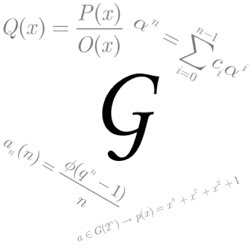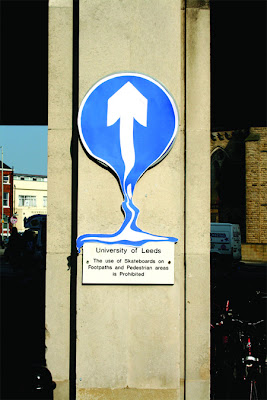
1. The 11 Times Trick
We all know the trick when multiplying by ten - add 0 to the end of the number, but did you know there is an equally easy trick for multiplying a two digit number by 11? This is it:
Take the original number and imagine a space between the two digits (in this example we will use 52:
5_2
Now add the two numbers together and put them in the middle:
5_(5+2)_2
That is it - you have the answer: 572.
If the numbers in the middle add up to a 2 digit number, just insert the second number and add 1 to the first:
9_(9+9)_9
(9+1)_8_9
10_8_9
1089 - It works every time.
2. Quick Square
If you need to square a 2 digit number ending in 5, you can do so very easily with this trick. Mulitply the first digit by itself + 1, and put 25 on the end. That is all!
252 = (2x(2+1)) & 25
2 x 3 = 6
625
3. Multiply by 5
Most people memorize the 5 times tables very easily, but when you get in to larger numbers it gets more complex - or does it? This trick is super easy.
Take any number, then divide it by 2 (in other words, halve the number). If the result is whole, add a 0 at the end. If it is not, ignore the remainder and add a 5 at the end. It works everytime:
2682 x 5 = (2682 / 2) & 5 or 0
2682 / 2 = 1341 (whole number so add 0)
13410
Let’s try another:
5887 x 5
2943.5 (fractional number (ignore remainder, add 5)
29435
4. Multiply by 9
This one is simple - to multiple any number between 1 and 9 by 9 hold both hands in front of your face - drop the finger that corresponds to the number you are multiplying (for example 9×3 - drop your third finger) - count the fingers before the dropped finger (in the case of 9×3 it is 2) then count the numbers after (in this case 7) - the answer is 27.
5. Multiply by 4
This is a very simple trick which may appear obvious to some, but to others it is not. The trick is to simply multiply by two, then multiply by two again:
58 x 4 = (58 x 2) + (58 x 2) = (116) + (116) = 232
6. Calculate a Tip
If you need to leave a 15% tip, here is the easy way to do it. Work out 10% (divide the number by 10) - then add that number to half its value and you have your answer:
15% of $25 = (10% of 25) + ((10% of 25) / 2)
$2.50 + $1.25 = $3.75
7. Tough Multiplication
If you have a large number to multiply and one of the numbers is even, you can easily subdivide to get to the answer:
32 x 125, is the same as:
16 x 250 is the same as:
8 x 500 is the same as:
4 x 1000 = 4,000
8. Dividing by 5
Dividing a large number by five is actually very simple. All you do is multiply by 2 and move the decimal point:
195 / 5
Step1: 195 * 2 = 390
Step2: Move the decimal: 39.0 or just 39
2978 / 5
step 1: 2978 * 2 = 5956
Step2: 595.6
9. Subtracting from 1,000
To subtract a large number from 1,000 you can use this basic rule: subtract all but the last number from 9, then subtract the last number from 10:
1000
-648
step1: subtract 6 from 9 = 3
step2: subtract 4 from 9 = 5
step3: subtract 8 from 10 = 2
answer: 352
10. Assorted Multiplication Rules
Multiply by 5: Multiply by 10 and divide by 2.
Multiply by 6: Sometimes multiplying by 3 and then 2 is easy.
Multiply by 9: Multiply by 10 and subtract the original number.
Multiply by 12: Multiply by 10 and add twice the original number.
Multiply by 13: Multiply by 3 and add 10 times original number.
Multiply by 14: Multiply by 7 and then multiply by 2
Multiply by 15: Multiply by 10 and add 5 times the original number, as above.
Multiply by 16: You can double four times, if you want to. Or you can multiply by 8 and then by 2.
Multiply by 17: Multiply by 7 and add 10 times original number.
Multiply by 18: Multiply by 20 and subtract twice the original number (which is obvious from the first step).
Multiply by 19: Multiply by 20 and subtract the original number.
Multiply by 24: Multiply by 8 and then multiply by 3.
Multiply by 27: Multiply by 30 and subtract 3 times the original number (which is obvious from the first step).
Multiply by 45: Multiply by 50 and subtract 5 times the original number (which is obvious from the first step).
Multiply by 90: Multiply by 9 (as above) and put a zero on the right.
Multiply by 98: Multiply by 100 and subtract twice the original number.
Multiply by 99: Multiply by 100 and subtract the original number.
Bonus: Percentages
Yanni in comment 23 gave an excellent tip for working out percentages, so I have taken the liberty of duplicating it here:
Find 7 % of 300. Sound Difficult?
Percents: First of all you need to understand the word “Percent.” The first part is PER , as in 10 tricks per listverse page. PER = FOR EACH. The second part of the word is CENT, as in 100. Like Century = 100 years. 100 CENTS in 1 dollar… etc. Ok… so PERCENT = For Each 100.
So, it follows that 7 PERCENT of 100, is 7. (7 for each hundred, of only 1 hundred).
8 % of 100 = 8. 35.73% of 100 = 35.73
But how is that useful??
Back to the 7% of 300 question. 7% of the first hundred is 7. 7% of 2nd hundred is also 7, and yep, 7% of the 3rd hundred is also 7. So 7+7+7 = 21.
If 8 % of 100 is 8, it follows that 8% of 50 is half of 8 , or 4.
Break down every number that’s asked into questions of 100, if the number is less then 100, then move the decimal point accordingly.
EXAMPLES:
8%200 = ? 8 + 8 = 16.
8%250 = ? 8 + 8 + 4 = 20.
8%25 = 2.0 (Moving the decimal back).
15%300 = 15+15+15 =45.
15%350 = 15+15+15+7.5 = 52.5
Also it’s usefull to know that you can always flip percents, like 3% of 100 is the same as 100% of 3.
35% of 8 is the same as 8% of 35.


































































